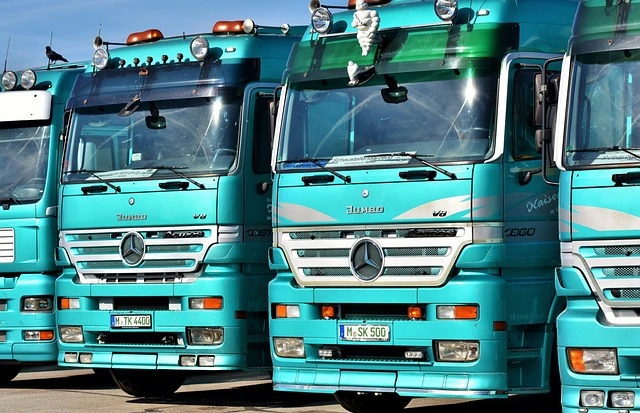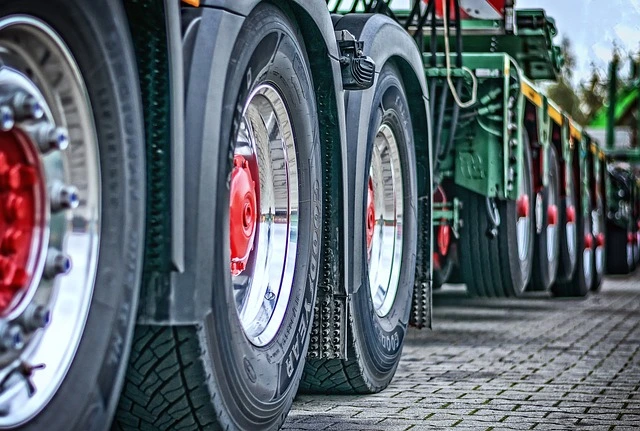Hotshot trucking is not a one-size-fits-all process. For operators in Arkansas and Missouri, understanding the distinctions between specialized hotshot truck insurance vs. generic commercial coverage can make all the difference.
This blog aims to educate hotshot trucking operators and small business owners in these states on why tailored insurance is essential for their needs.
Hotshot trucking involves the rapid transport of goods, typically using smaller trucks or trailers, to meet urgent delivery needs. This niche requires a specialized approach to insurance, distinct from generic commercial coverage.
Let’s delve into the differences in coverage, the tailored protection offered by hotshot insurance, and the cost considerations that make it a superior choice for hotshot trucking operations.
Hotshot Truck Insurance in Arkansas
Hotshot trucking in Arkansas presents unique risks and challenges. The state’s diverse landscape, from rural areas to urban centers, requires truckers to navigate varying road conditions and weather patterns. Additionally, the nature of hotshot trucking, which often involves expedited delivery of time-sensitive cargo, adds another layer of complexity.
Insurance Needs
In Arkansas, hotshot truckers need insurance that addresses these specific challenges. Key coverage requirements include:
- Liability Insurance: Essential for covering bodily injury and property damage in case of an accident.
- Cargo Insurance: Protects the value of the goods being transported.
- Physical Damage Insurance: Covers repairs or replacement of the truck in case of damage.
- Non-Trucking Liability Insurance: Offers protection when the truck is being used for non-business purposes.
Moreover, compliance with Arkansas state regulations is critical. The Arkansas Department of Transportation (ARDOT) has specific requirements that hotshot truckers must meet to operate legally within the state.
Benefits
Specialized hotshot truck insurance tailored to Arkansas offers several advantages:
- Compliance with Local Laws: Ensures that operators meet all state-specific regulatory requirements.
- Protection Against Regional Risks: Provides coverage for risks unique to Arkansas, such as adverse weather conditions and rural road hazards.
- Enhanced Business Security: Tailored policies offer comprehensive protection, minimizing financial losses from accidents or cargo damage.
Hotshot Truck Insurance in Missouri
Missouri’s regulatory environment and operational challenges differ from those in Arkansas. The state’s central location in the U.S. makes it a critical hub for interstate commerce, which impacts hotshot truckers who often transport goods across state lines.
Coverage Specifics
For Missouri hotshot truckers, understanding state-specific insurance requirements is crucial. Recommended coverage options include:
- Primary Liability Insurance: Mandatory for all commercial vehicles operating in Missouri.
- Cargo Insurance: Essential for protecting the value of the transported goods.
- Physical Damage Insurance: Covers damages to the truck from accidents, theft, or natural disasters.
- Trailer Interchange Insurance: Important for truckers who use trailers owned by others.
Missouri’s regulations, enforced by the Missouri Department of Transportation (MoDOT), require adherence to specific standards to ensure safe and legal operation.
Advantages
Specialized hotshot truck insurance in Missouri offers significant benefits:
- State-Specific Coverage: Addresses unique risks such as severe weather conditions and high-traffic areas.
- Regulatory Compliance: Ensures policies meet MoDOT requirements, avoiding fines and legal issues.
- Comprehensive Protection: Provides robust coverage options that safeguard both the truck and cargo, enhancing overall business security.

Differences in Coverage: Hotshot Truck Insurance vs. Generic Commercial Coverage
Hotshot truck insurance is specifically designed to address the unique risks associated with hotshot trucking. Here’s a breakdown of how it differs from generic commercial coverage:
1. Coverage Scope:
- Hotshot Truck Insurance: This policy typically covers the specifics of hotshot trucking, including cargo coverage, physical damage, and liability tailored to the types of goods being transported, the value of the cargo, and the routes traveled.
- Generic Commercial Coverage: Generally broader, it may not include the specialized elements that hotshot trucking requires, such as coverage for flatbed trailers, the expedited nature of deliveries, or the unique risks associated with hauling high-value or hazardous materials.
2. Tailored Endorsements:
- Hotshot Truck Insurance: Policies often come with endorsements that cater specifically to the needs of hotshot trucking. These can include coverage for cargo delays, breakdowns, or extra expenses due to the nature of hotshot operations.
- Generic Commercial Coverage: While it might offer basic cargo and liability protection, it usually lacks the fine-tuned endorsements needed for the fast-paced and high-risk environment of hotshot trucking.
Tailored Protection: Why Hotshot Insurance is Better Suited to Unique Risks
Hotshot trucking presents unique challenges and risks that generic commercial coverage simply doesn’t address effectively:
1. Higher Risk Exposure:
- Hotshot trucking involves transporting goods over short distances with tight deadlines. This increases the likelihood of accidents and cargo damage. Hotshot insurance is designed to cover these high-risk scenarios, ensuring that drivers and their businesses are protected against potential losses that generic policies might overlook.
2. Cargo and Equipment Specifics:
- The equipment used in hotshot trucking, such as flatbeds or gooseneck trailers, requires specialized coverage. Hotshot insurance policies are crafted to provide the right protection for these assets, including coverage for the cost of repairs or replacement in case of damage or theft.
3. Flexibility and Customization:
- Hotshot insurance is often more flexible, allowing for customization based on the specific needs of each business. Whether it’s coverage for expedited shipping, emergency repairs, or higher liability limits, hotshot insurance can be tailored to offer comprehensive protection that generic policies lack.
Cost Considerations: Specialized Hotshot Truck Insurance vs. Generic Commercial Policies
Cost is a significant factor in choosing the right insurance. Here’s how hotshot truck insurance and generic commercial coverage compare:
1. Premium Differences:
- Hotshot Truck Insurance: While it may seem more expensive upfront, the tailored coverage and specific protections it provides can save money in the long run by minimizing out-of-pocket expenses and reducing risk exposure.
- Generic Commercial Coverage: Often cheaper initially, but it may not cover the specialized risks of hotshot trucking adequately. This can lead to higher costs if claims are made or if additional coverage is needed to fill gaps in protection.
2. Claims and Coverage Efficiency:
- Hotshot Truck Insurance: Designed to handle claims quickly and efficiently, reducing downtime and ensuring that hotshot operations can continue with minimal disruption. This efficiency is crucial for businesses that rely on timely deliveries.
- Generic Commercial Coverage: Claims processes may be slower and less tailored to the needs of hotshot trucking, potentially leading to longer times and more complications in getting claims approved.
3. Long-Term Savings:
- Investing in specialized hotshot insurance can result in long-term savings by providing comprehensive coverage that prevents significant financial losses due to accidents, cargo damage, or equipment failures. Generic policies seem cost-effective but often come with limitations that could cost more in the event of a claim.
To Conclude
In summary, hotshot truck insurance is not just another type of commercial truck insurance coverage—it is a tailored solution designed to meet the specific needs and challenges of hotshot trucking. Its specialized protections, flexibility, and efficient claims handling make it far superior to generic commercial coverage.
Hotshot truckers in Arkansas and Missouri face unique risks and regulatory requirements that generic commercial coverage often fails to address. Specialized hotshot truck insurance provides tailored coverage that ensures compliance with state laws and offers robust protection against regional risks.
While the initial costs might be higher, the long-term benefits, including better protection and potential cost savings, make hotshot truck insurance an invaluable investment for any hotshot trucking business.
Don’t leave your business vulnerable. Explore tailored insurance options designed specifically for hotshot trucking operations in Arkansas and Missouri. Protect your investment and ensure compliance with local laws by choosing the right coverage today.
By understanding the importance of specialized hotshot truck insurance and its benefits over generic commercial coverage, hotshot trucking operators in Arkansas and Missouri can make informed decisions that protect their businesses and livelihoods.
Ready to protect your business? Our independent insurance company is here to help. Get a quote today and ensure your hotshot trucking operation is fully covered.
For more information and helpful advice, check out our Top 5 insurance tips for new hotshot truckers.


